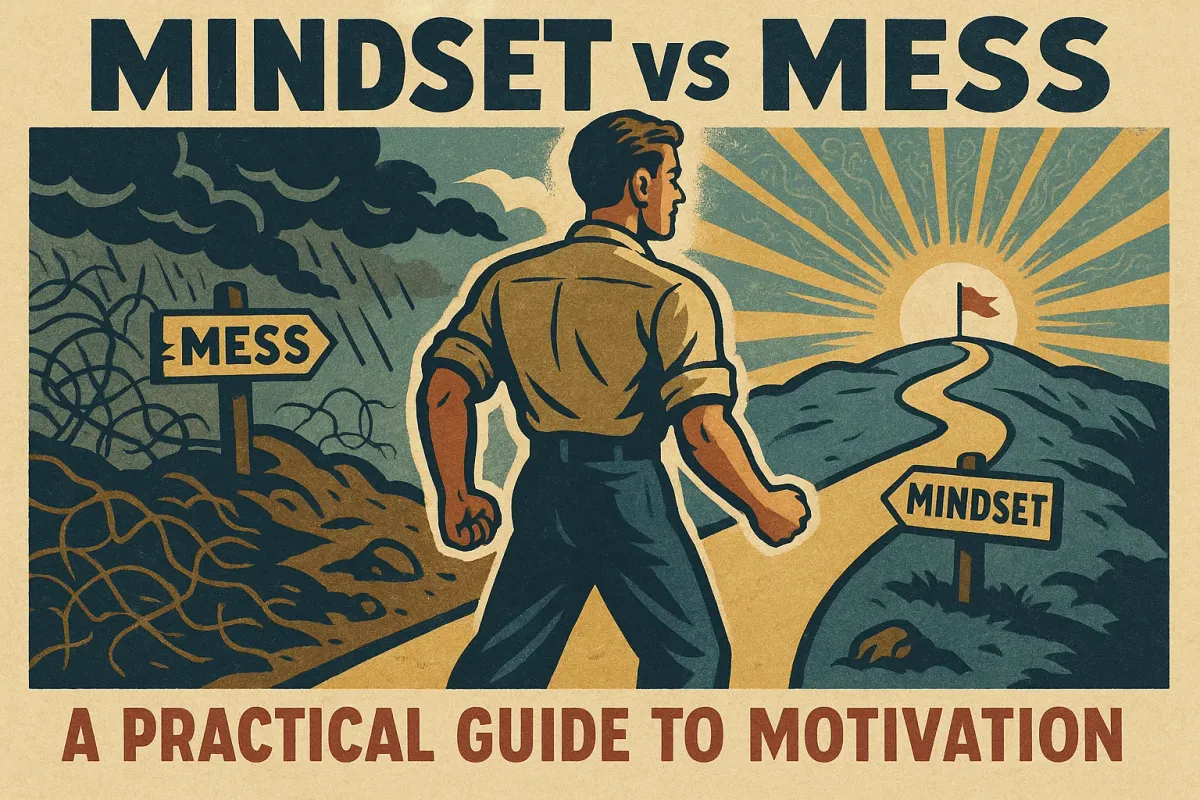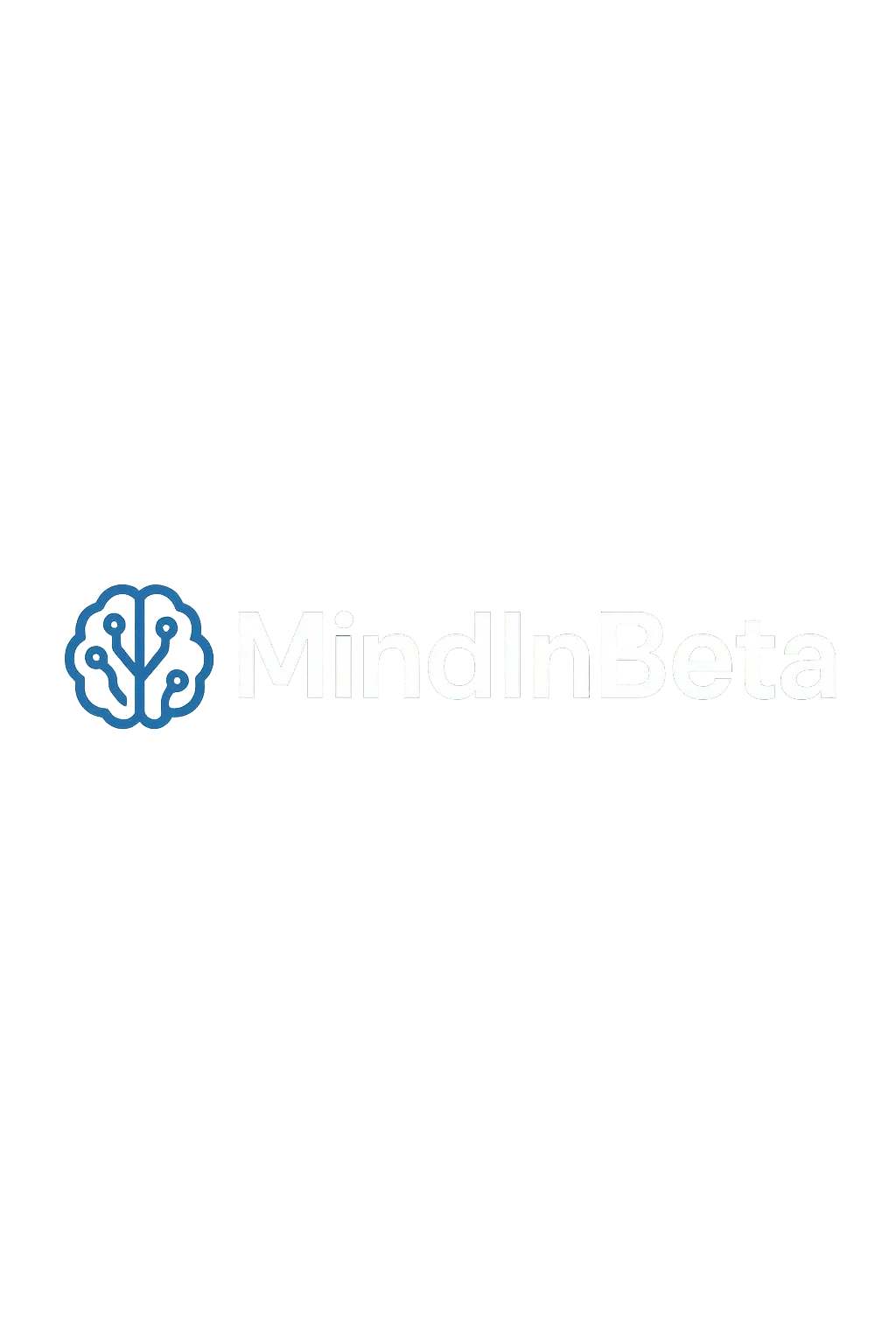Emotional Intelligence: The Skill AI Can't Replace by 2035
The future belongs to those who master the art of being human.
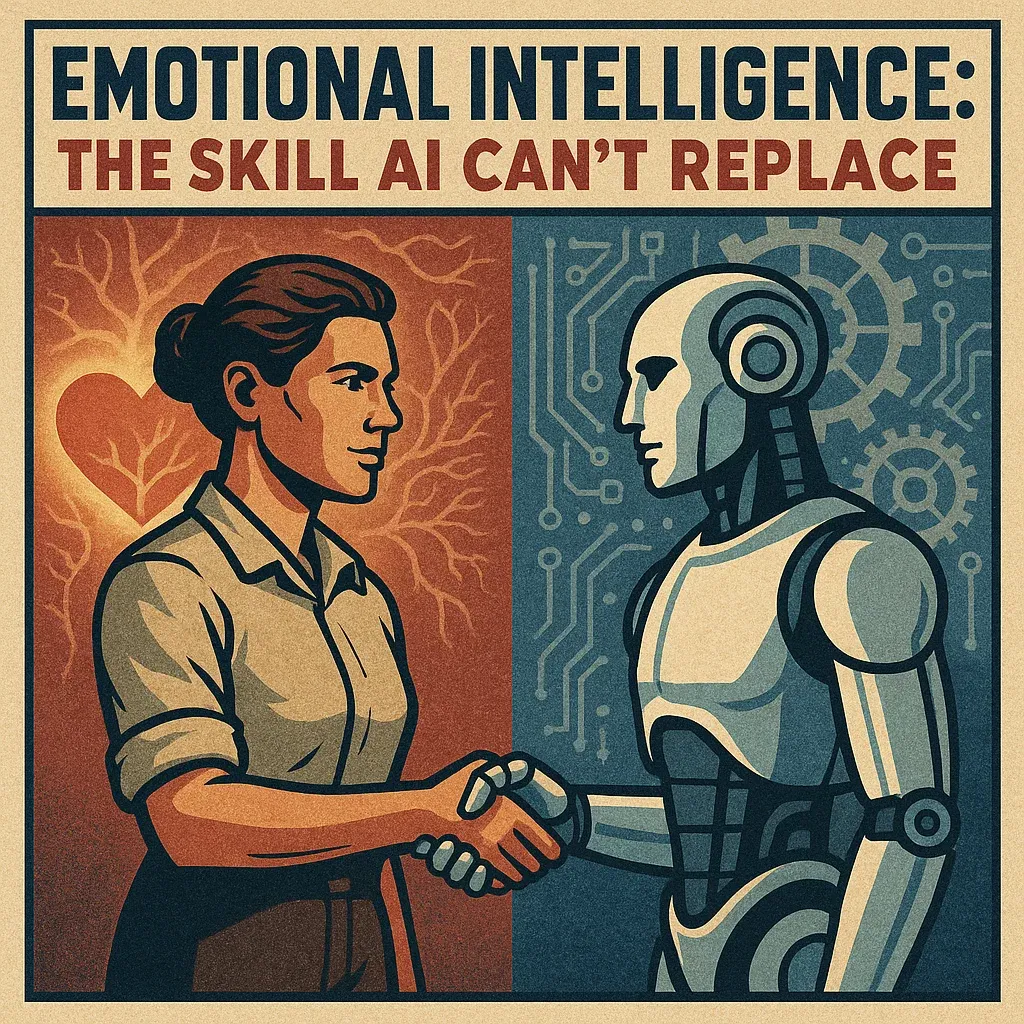
Table of Contents
Whether we like it or not, the world is quickly racing toward a future where artificial intelligence can replicate many of the skills we use in our day-to-day lives, and do it faster too. (Although I doubt AI will ever be able to make a situation as awkward as fast as I can)
However, there is one thing AI cannot replace: being human.
Technology has disrupted industries, replaced jobs (and created new ones), and caused mass hysteria many times before in the past (in 1825, people believed trains would rip you apart). But something this time just feels different... As a student still in university, I often wonder: How many of the technical skills that I'm paying to learn today will even matter five or ten years from now? And I'm not alone. Many of my peers and mentors share the same concern.
So, I finally decided to do a deep dive into whether these fears are well-founded. Should we really be worried? Is it really different than the hundreds of new technologies that reshaped society since the Industrial Revolution? Or is it just another case of fearing the unknown - like when cars replaced horses, and everyone panicked about what it meant for their livelihoods?
While I didn’t land on a solid conclusion about the future of AI, I did uncover one common thread across business reviews, research papers, and the insights of forward-thinking leaders: Something makes humans unique - and whatever it is that makes us unique will become more and more valuable in the future as AI inevitably replaces much of what we get paid to do in the present.
So, what is that unique human advantage? What will future-proof our careers and make us stand out in the future?
The mystical and elusive Emotional intelligence.
Let's dive in.
What is Emotional Intelligence really?
What emotional intelligence isn't.
Sometimes the best way to define something is to start by describing what it isn't. We've all dealt with someone who, at least in that moment, lacked emotional intelligence. A lack of emotional intelligence looks like that person who receives some constructive criticism, only to quickly become defensive and sulk the rest of the day. Or that member of a team who's constantly pulling the conversation back towards them and their ideas in a selfish manner, without noticing the others trying to speak. The hard truth is, we've all been on both sides of these interactions.
Dealing with people who lack emotional intelligence, whether in that moment or in general, can be very difficult. Oftentimes, it requires us to put our egos aside, and put the goal in mind first, in order to defuse the situation and move forward (a sign of high emotional intelligence).
So, what were the individuals in the scenarios above lacking, and why should we be concerned with it? Isn't learning about emotions and caring meant for therapists and woosies? Doesn't it mean being extra soft, sentimental and emotional? Career and business aren't about being soft, they're about being tough, working hard, and beating others - to hell with all this sensitive, new age *%@#&@$&...
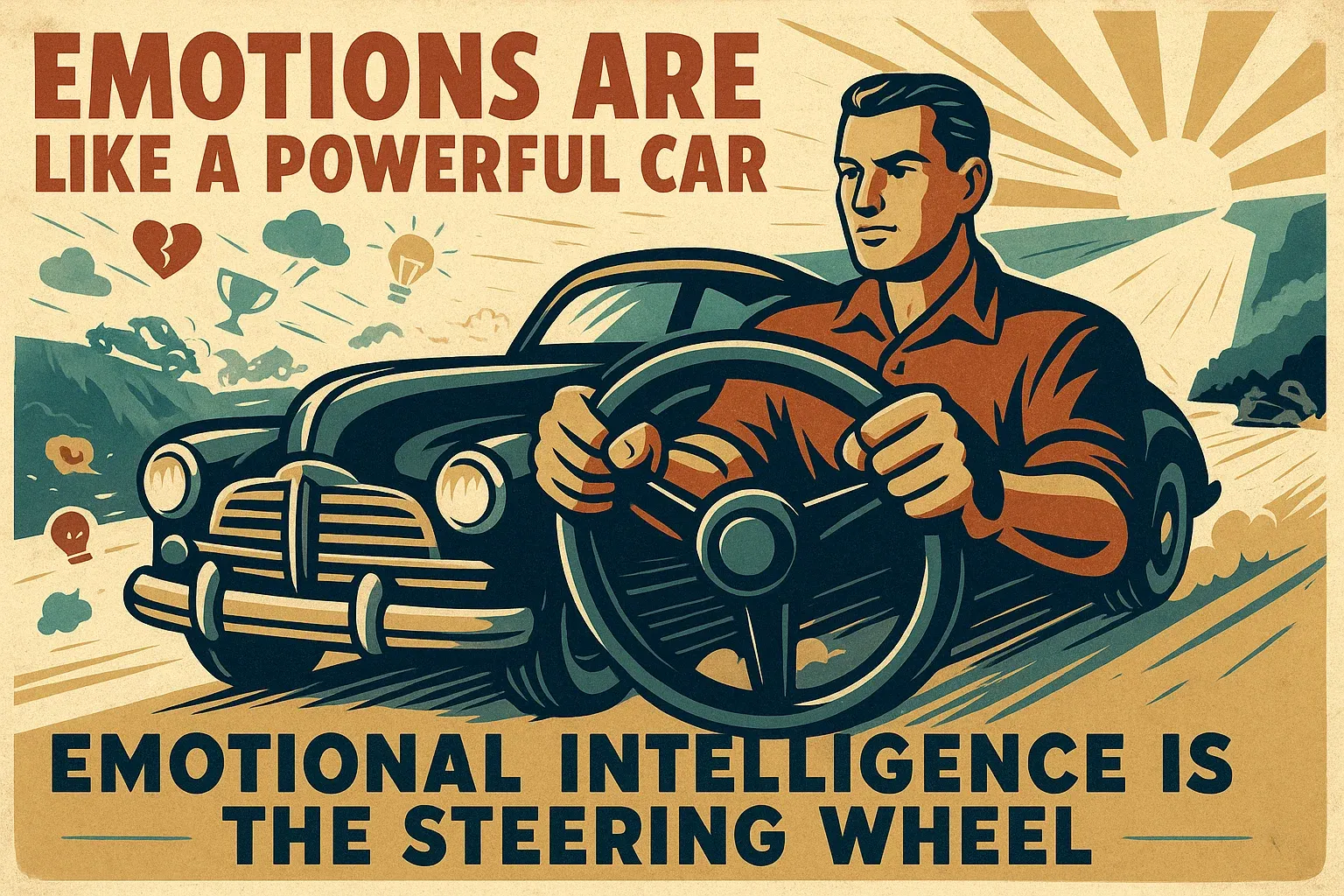
Defining emotional intelligence.
These are valid assumptions. But, like most assumptions, they couldn't be further from the truth. To put it simply, emotional intelligence (EI for short) is your ability to recognize emotions within yourself and others, and then choose to manage them rather than let them control you. It's to read the room. manage yourself under pressure, and connect with others. This is no easy task.
Emotions are like a car - powerful, fast, and capable of taking you places. If you step on the gas without having a handle on the steering wheel, though, you may head straight for a wall, a cliff, or into someone else. You don't want to stop the car from moving, but gently guide it instead. Emotional intelligence is the steering wheel, and without it, you're just a passenger at the mercy of your mind.
What does science have to say?
There is quite a lot of information available on emotional intelligence, but to keep it short, we can break down the research into 3 key points:
Emotional intelligence can be improved: Although it has the word "intelligence" in it, it isn't like IQ, which is commonly thought to be static across your lifetime. Instead, your understanding of emotions can change and be improved with the right techniques and awareness (which we'll cover later in this post).
Wait, there's more! Subscribe or log in to get full-access. It's FREE (really!)
Emotionally intelligent people have better life outcomes: Those high in emotional intelligence report lower risk of anxiety, depression, burnout, and substance abuse while showing higher job satisfaction and better social lives (who would've thought).
The higher it is, the more you get paid: High EI is associated with higher salaries. In fact, a study from 2019 showed that 59% of employers would not hire someone who had low EI but high IQ (Fouts, 2019).
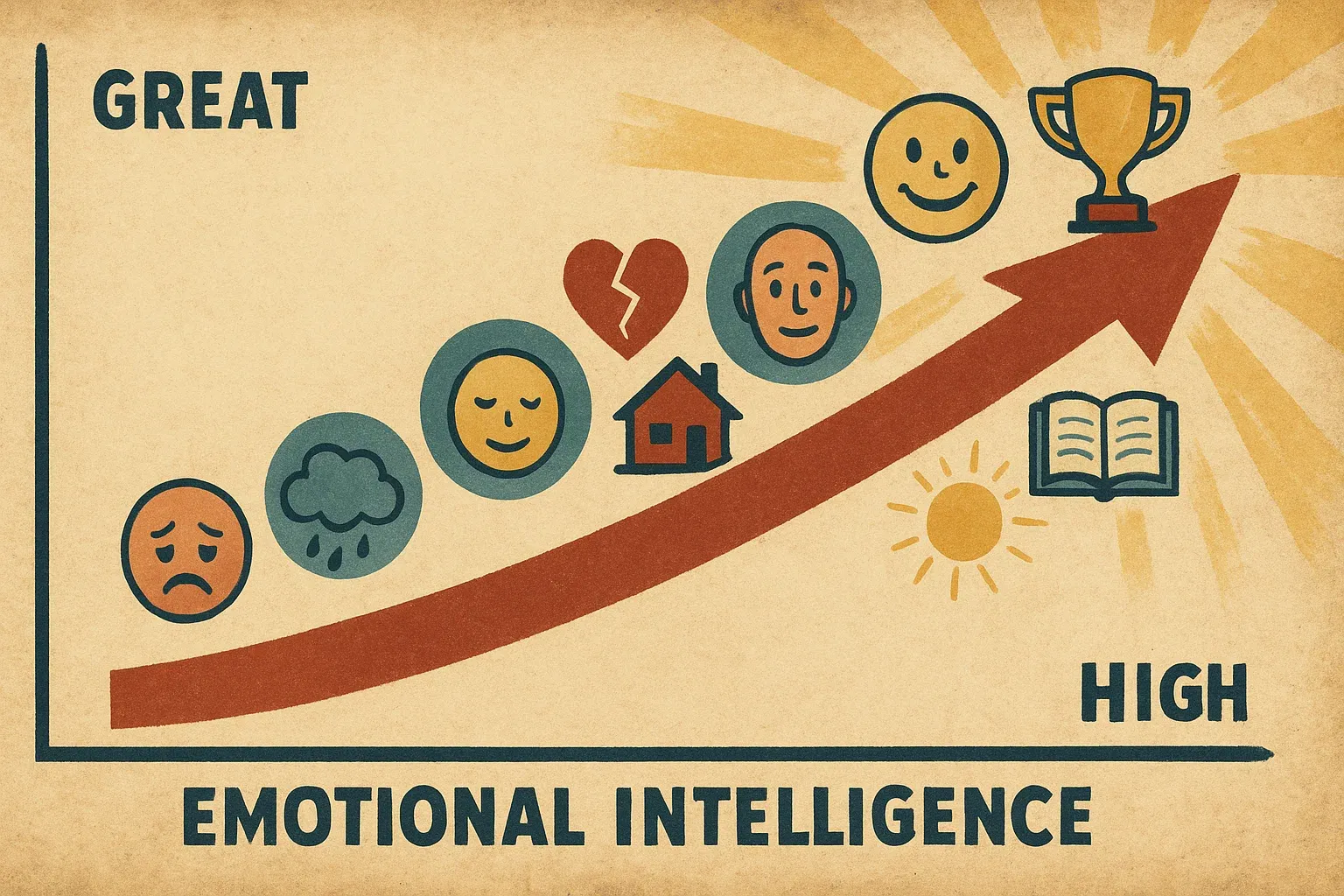
Technical Skills Alone Won't Be Enough
Now that we've defined emotional intelligence and talked about a few of the benefits of being high in it, one question remains: How does it relate to my career and artificial intelligence?
AI has been improving at an increasingly alarming rate over the past 10 years since it was first developed, and it doesn't show any signs of slowing down anytime soon. In fact, over the last 6 years, AI's ability to complete complex tasks has doubled every 7 months on average. This means many of the procedural tasks that we are currently getting paid to do may be replaced in the very near future.
According to the World Economic Forum, employers estimate that 44% of workers’ skills will be disrupted in the next five years! There's been a sudden shift in what employers value most, with analytical thinking (think crunching numbers, statistics, etc.) taking the back seat, while creative thinking and social skills are taking the wheel. This makes emotional intelligence, the foundation of social skills, more important than ever before.
As AI begins to replace many of our current functions, companies will place emphasis on the human-to-human interaction aspects of work. This means that as an accountant, you may spend more time understanding what it is that your client wants and how to best help them, rather than recording financial transactions and preparing reports.
This may sound like doom and gloom, but it's actually good news! It means that understanding each other through communication will be a higher focus, and many of the monotonous tasks that take up so much time will be no more. Doctors can now focus on talking to their patients and accurately diagnosing, rather than spending ~20% (or in my experience, more) of their time on administrative tasks like data entry.
If we want a secure future, we better start taking our interpersonal skills more seriously.
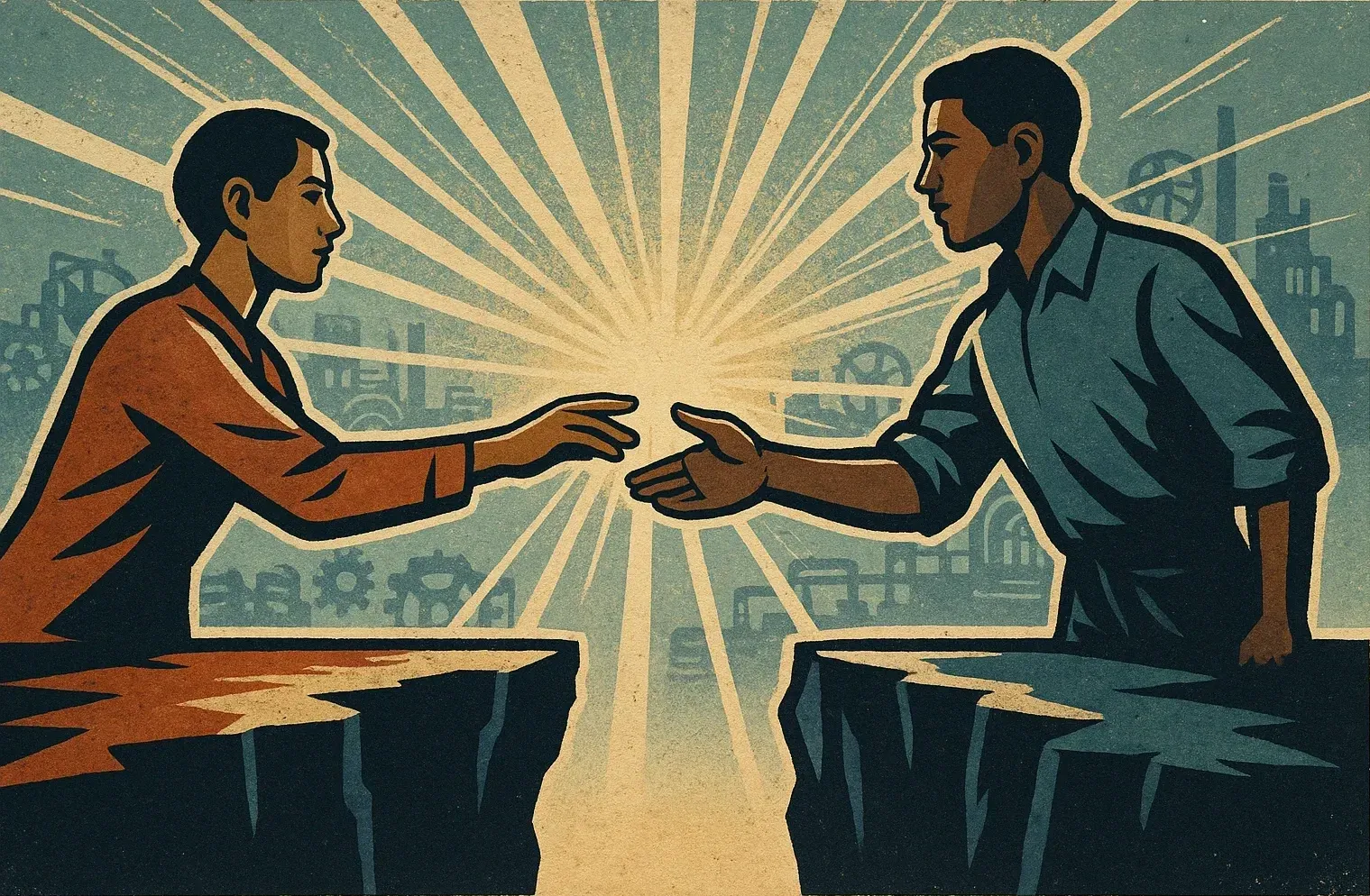
The Human Edge: Skills AI Still Can't Touch
Think of the people in your life who've had the greatest impact on you outside of your immediate family. Most people would recall a great teacher, a good boss, and other various leaders and mentors from their past. Now, recall individuals who you remember as having a bad impact on your life. Many would think of people in those same roles. We value (or dislike) others because of their emotional impact on our lives - we value them because of their emotional skills.
What are those emotional skills?
Empathy: Understanding others and their emotions is the foundation of communication. We have to meet people where they are, and really take into consideration the entire context behind how they've become that person.
Trust Building: This one may seem a little Machiavellian. You're telling me I have to understand how to gain someone's trust? That sounds a little manipulative. Not so fast. It simply means understanding the foundation of trust and why we trust others. At its core, we trust others because of their honesty and consistency. Say what you mean, mean what you say, and follow through. Building trust really is that simple (and it's even easier to break).
Resolving conflicts: This one might be the toughest out of the three, especially if you are one of the parties involved in the conflict. A conflict implies disagreement and negative emotions by its very nature. It's easy to read about conflict and how to resolve it on a screen, but it's another thing to put it into practice. Think about the last time you had a disagreement with someone. How easy was it to truly see their side and where they were coming from?
At the end of the day, machines will continue to calculate and complete tasks faster and faster, but they can't care better.
How to Start Building Emotional Intelligence
I mentioned earlier that research is showing emotional intelligence can be improved. Which means that you can get better at the skills listed earlier and become a more valuable employee, family member, and friend. How can we do this?
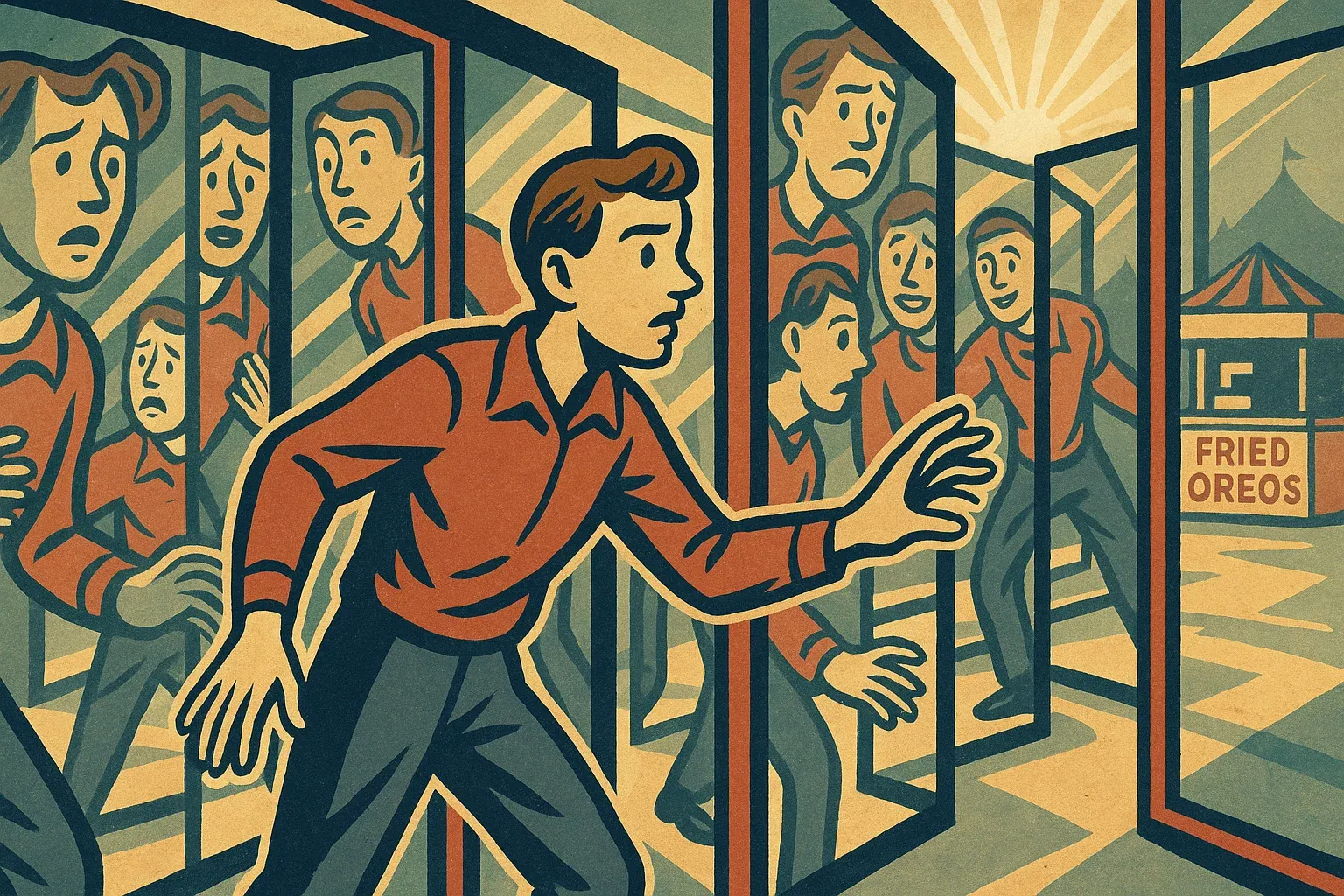
Self-awareness
"Self-awareness? Pshh. I know myself pretty well as it is, it's the people around me that need to take a look in the mirror,"... Is how someone very low in self-awareness would probably respond. Recent research has shown that while 95% of people think they are self-aware, only 10-15% actually are. Chances are, you and I aren't as self-aware as we think we are.
To be fair, the entire concept is very elusive.
Think about those glass mirror mazes at a fair or theme park. You walk inside, sure that you'll make it to the end, only to quickly become confused by the reflections. You look into the mirror only to see yourself, reflected back by another mirror behind you, reflected again, and again, and... you get the point. Soon enough, the you that was doing the looking gets confused with the you that you were looking at (and to make matters worse, those deep-fried Oreos from earlier aren't sitting well in your stomach).
There's good reason to look, though. From communication, relationships, our character, and the workplace, when we have a better understanding of ourselves and see ourselves clearly, every aspect of our life improves. So, without further ado, here are 4 ways to increase your self-awareness.
Seek Feedback: One of the best ways to break out of that reflection loop mentioned earlier is to have someone break the mirror with a hammer. By honestly seeking real feedback from those who know us most, we can begin to see our flaws. The hardest part is finding someone willing to be honest, it's not easy explaining to someone their flaws. Be prepared, though, you may not like what you hear, and our first instinct is defense. In order for this to work, we have to take what they give us as (at least partly) truth and take it with humility.
Reflect on Your Values: Another way to become self-aware is to really analyze your own beliefs about the world and why you have those beliefs. What is it that really matters to you? What do you find attractive in other people's personalities and character? Are you living by that same standard?
Explore Your Past: As we get older, we naturally find better ways to deal with the same situations (hopefully). However, rarely do we take a moment to ask ourselves: How did I get here? How did I get here emotionally? Physically? Mentally? Taking a look at your past and really understanding the influences in your life can be huge for your own self-actualization.
Journal: Last but not least, journaling! Wait, isn't that just a fancy word for a diary? And aren't diaries for little girls? While the movies in our childhood might've made you think that (a realization you might have after exploring your past), it, again, couldn't be further from the truth. Many of history's greatest leaders were known to journal (Leonardo da Vinci, Anne Frank, Lewis Carroll, Winston Churchill, and the list goes on and on), and many were known for their journals. We wouldn't have known about them had they not taken the time to sit down by themselves and write about their thoughts! Journaling is a time-tested, as real as it gets, method to understanding yourself, as all of the other techniques can be incorporated into your writing. In fact, it's one of the motivations behind me writing this blog as you read!
Conclusion: Your Humanity Is Your Superpower
Well, you've made it to the end, and what have we learned? For starters, emotional intelligence should be a much higher focus in all of our lives. Research (and experience) has shown us that emotional intelligence:
- Can be improved
- Generates higher income (when improved)
- Is associated with better life outcomes
Artificial intelligence is also rapidly improving, and experts expect it to replace many of the tasks we currently do. In fact, most businesses are investing heavily and focusing the most on the implementation and use of AI within their space, and that focus is expected to increase over the next 5 years. Accountants will spend less time crunching numbers, and doctors will spend more time talking to patients. This means that we're at a critical point in history where the things that make us uniquely human will be the key driver behind success in our careers.
As such, future skills AI can't replace, such as empathy, trust building, and conflict resolution, will take center stage and make us stand out. This is already true as employers shift towards valuing soft skills more than technical skills.
Technical skills can be quickly taught, but holding your tongue back when someone upsets you takes lots of time and practice.
Because E-I can be improved and the associated skills are paramount, we talked about 4 ways to improve those skills, which are: seeking feedback, reflecting on your values, exploring your past, and keeping a cute little girly diary (just how Marcus Aurelius, one of the greatest Roman emporors and stoic philosophers of all time, did).
The future belongs to those who master the art of being human.
References:
- Future Jobs Report of 2023, World Economic Forum - https://www.weforum.org/publications/the-future-of-jobs-report-2023/digest/
- Harvard Business Review - https://hbr.org/2004/01/what-makes-a-leader
- Harvard Business Review - https://hbr.org/2018/10/working-with-people-who-arent-self-aware
- 9 Times In History Everyone Freaked Out About Technology - https://www.ranker.com/list/historical-freak-outs-about-new-technology/taeyura
- Can Emotional Intelligence Be Improved? - https://pmc.ncbi.nlm.nih.gov/articles/PMC6808549/
- Emotional Intelligence and Well-Being - /pmc.ncbi.nlm.nih.gov/articles/PMC10783582/
- IQ vs. EQ - https://www.psichi.org/page/281Eye-IQ-vs-EQ-for-Career-Success
- AI Improvements - https://metr.org/blog/2025-03-19-measuring-ai-ability-to-complete-long-tasks/#:~:text=We%20find%20that%20measuring%20the,needed%20to%20solve%20single%20steps.
- Doctor's Administrative Work - https://pubmed.ncbi.nlm.nih.gov/25626223/
Does all of this seem nice, but you have a hard time finding the energy or purpose in actually taking action? Are you interested in learning more about motivation? Check out this blog post!
